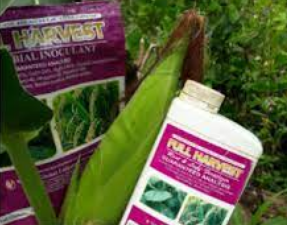Organic fertilizers are becoming increasingly popular among farmers and gardeners around the world. These fertilizers are made from natural sources, such as animal manure, compost, and plant materials, and are free from synthetic chemicals and harmful additives. In this article, we will explore the benefits of using organic fertilizers and why they are a better choice for plant growth and soil health.
One of the primary benefits of using organic fertilizers is that they release nutrients slowly over time. Unlike synthetic fertilizers, which can cause nutrient burn and leaching, organic fertilizers provide plants with a steady supply of nutrients. This slow-release mechanism ensures that plants have access to essential nutrients, such as nitrogen, phosphorus, and potassium, throughout their growth cycle. This, in turn, leads to healthier and more productive plants, with higher yields and better quality produce.
Organic fertilizers also improve soil structure and enhance soil water-holding capacity. This is because they contain organic matter, which helps to build up soil structure, promote aeration, and improve drainage. The improved soil structure allows plant roots to penetrate the soil more easily, giving them access to water and nutrients. Additionally, the increased water-holding capacity of the soil helps to reduce water runoff and erosion, which can be beneficial in areas with limited water resources.
Another important benefit of using organic fertilizers is that they are environmentally friendly. Unlike synthetic fertilizers, which are made from petroleum products and other harmful chemicals, organic fertilizers are made from natural sources and do not contain any toxic substances. This makes them safer for the environment and reduces the risk of soil pollution and water contamination. Additionally, organic fertilizers are biodegradable, which means they break down naturally over time and do not accumulate in the soil.
Organic fertilizers also promote the growth of beneficial soil microorganisms, such as bacteria and fungi. These microorganisms play a vital role in breaking down organic matter and releasing nutrients that are essential for plant growth. In fact, some organic fertilizers, such as compost tea, are specifically designed to promote the growth of beneficial microorganisms. By using organic fertilizers, you can create a healthy and diverse soil ecosystem that supports the growth of plants and helps to reduce the risk of soil-borne diseases.
Using organic fertilizers is also an important component of sustainable agriculture. Synthetic fertilizers have been linked to numerous negative environmental impacts, such as soil erosion, water contamination, and the loss of biodiversity. Organic fertilizers, on the other hand, are a more sustainable choice because they promote healthy soil and plant growth without relying on synthetic chemicals. By using organic fertilizers, farmers and gardeners can reduce their environmental impact and contribute to a more sustainable food system.
 Finally, while organic fertilizers may be more expensive initially, they are often more cost-effective in the long run. This is because they improve soil health and reduce the need for additional fertilization. Additionally, organic fertilizers can be produced on-farm, using locally available resources, which can further reduce costs.
Finally, while organic fertilizers may be more expensive initially, they are often more cost-effective in the long run. This is because they improve soil health and reduce the need for additional fertilization. Additionally, organic fertilizers can be produced on-farm, using locally available resources, which can further reduce costs.
In conclusion, organic fertilizers offer numerous benefits for plant growth and soil health. They release nutrients slowly over time, improve soil structure and water-holding capacity, promote the growth of beneficial soil microorganisms, and are environmentally friendly. Additionally, using organic fertilizers is an important component of sustainable agriculture and can be a cost-effective solution for farmers and gardeners. By choosing organic fertilizers, we can create a healthier and more sustainable food system, while also protecting the environment for future generations.




